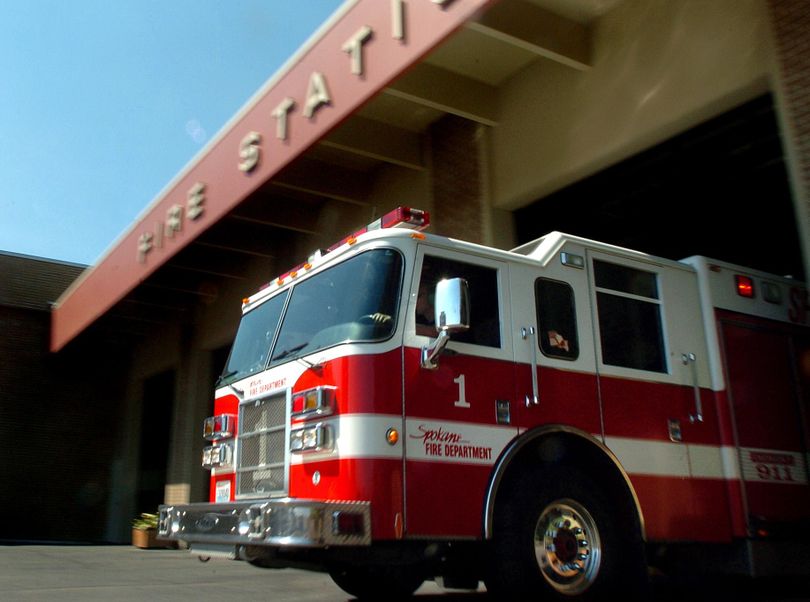More on that 911 sales tax, and where your sales taxes go

A reader called me this morning, asking for additional information that was absent from a story on page 2 of Thursday's Northwest section in which elected leaders and first reponders made their pitch for Spokane County voters to approve an extension of a decade-old sales tax funding emergency communication.
The 1/10th of 1 percent sales tax is one of six such active sales tax additions in the city approved by voters on various ballots or by local governments. The others are:
Criminal justice - Enacted by state law in 1990, Spokane County imposes a .1 percent sales tax to fund "criminal justice purposes." Spokane County gets an automatic 10 percent of the collected tax, while the other 90 percent is allocated within the county based on population figures determined by the Office of Financial Management.
Public safety and health - Spokane is one of five Washington counties that have approved this tax, which was authorized under state law in 2003 and first passed by Spokane County voters in 2004, with 52 percent of ballots in favor.
Juvenile jail and detention facilities - Created by state law in 1995, any county with a population of less than 1 million residents can levy a .1 percent sales tax to fund "financing, design, acquisition, construction, equipping, operating, maintaining, remodeling, repairing, reequipping, and improvement of juvenile detention facilities and jails." Voters have extended that tax four times, most recently in April 2015 with nearly 70 percent of the vote.
Mental health - Authorized by state law in 2005, this tax is to be used for the creation of treatment programs for those with either chemical dependency of a diagnosed mental illness. The tax has been imposed in Spokane County every year since 2006. The county was not required to hold a vote under state law, but an advisory ballot indicated 54 percent of citizens approved of the tax when polled in 2005.
Public facilities - The city and county created a public facilities district in 1989, proposed constructing the Spokane Veterans Memorial Arena in 1990, and went to voters with a request for a 2 percent hotel tax, which failed. In fall 1991, voters approved a .1 percent sales tax to fund construction of the arena, which opened in 1995. The tax was most recently extended for a decade in 2012 to fund construction and expansion of the Spokane Convention Center.
On April 1, a new .1 percent sales tax will go into effect in Spokane County to expand public transit services, following voters' approval of a ballot measure in November. That will bring the total amount collected with the public transportation benefit area in Spokane for public transit service to .7 percent of the sales tax collected on a purchase.
That will bring the total sales tax rate to 8.8 percent within the City of Spokane. The state collects 6.5 percent of that. One percent is shared between the city and county, with Spokane taking .85 percent and the county taking .15 percent. That discrepancy is the reason Spokane and the county frequently butt heads on annexation of sales tax-lucrative areas.
So here's a breakdown of where the sales tax goes on your purchases, effective April 1:
- State: 6.5 percent
- City: .85 percent
- STA (within transit area): .7 percent
- County: .15 percent
- Public safety: .1 percent
- Juvenile detention: .1 percent
- Emergency communication: .1 percent
- Mental health: .1 percent
- Public facilities: .1 percent
Based on the total amount of retail sales in Spokane County in 2015, the most recent year for which data is available, $8.5 million was available for emergency communication services. That funding would need to come from another source, or emergency agencies would have to do some belt-tightening, if voters do not approve a continuation of the sales tax next month.
This tax is separate from a statewide excise tax reflected on your phone bill funding 911 services. Though Lorlee Mizell, director of emergency communications for Spokane County, said dwindling revenue from landlines will likely mean the costs of installing technology for future 911 services will need to be paid for at least partially by the sales tax.
